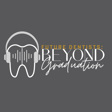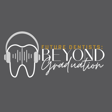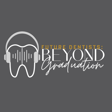
Navigating Treatment Failures and Dentistry’s Unique Challenges
About the Hosts:
Dr. Craig is a vibrant, newly graduated dental professional who is making her mark in the world of dentistry. With a keen focus on continuous learning and adapting to challenges in her practice, she shares her journey of navigating the complexities in dental practice during the early years of her career.
A seasoned dentist, Dr. Sartor brings a wealth of experience and wisdom to the podcast. Known for her insightful perspective on patient communication and dental efficacy, she offers valuable strategies and methodologies for successful dental practice management. Her journey reflects growth and adaptation to various industry challenges.
Episode Summary:
Welcome to "Beyond Graduation," where Dr. Savanah Craig and Dr. Ronnetta Sartor explore the nuances of early career challenges in dentistry. In this episode, they delve into the critical and often controversial topic of handling treatment failures and rework in dentistry, comparing it to practices in medicine. This engaging dialogue brings forth the intricacies of patient communication, professional accountability, and building a successful practice.
Dr. Craig and Dr. Sartor exchange perspectives on how newly graduated dentists can navigate reworks, redo procedures, and treatment failures. They discuss the importance of transparency with patients and how to manage expectations amidst the unpredictable nature of dental treatments. Dr. Sartor reflects on her own maturation process in the dental field, sharing strategic insights into over-communicating with patients to align their expectations better.
In examining the broader aspects of dentistry that set it apart from medicine, the episode explores how dental insurance and the perceived value of oral health influence the coverage and expectations surrounding dental procedures. Dr. Craig candidly discusses her sentiments as a new practitioner, grappling with imposter syndrome, and emphasizes the role of ongoing education and honest communication. The episode highlights the shift towards viewing complications as educational opportunities, where the "dentistry failed, not the dentist," fostering a supportive environment for professional growth and patient trust.
Key Takeaways:
- Differences in handling treatment failures and reworks are stark between dentistry and medicine, prompting reflections on accountability and patient communication.
- Establishing a robust dialogue with patients about current and future dental risks plays a vital role in managing expectations and outcomes.
- Newly graduated dentists like Dr. Craig explore balancing personal accountability with unpredictable complications in dental procedures.
- Reflecting on a transition in mindset, from personal blame to recognizing systemic failures in dentistry, enhances learning and professional development.
- Understanding how patients value dental health compared to general health systems can influence discussions and expectations regarding treatment outcomes.
Connect with Us:
- Savanah Craig, DDS: @savanahcraigdds
- Ronnetta Sartor, DMD: @dr_sartor
- FutureDentists Beyond Graduation: @futuredentistsbeyondgraduation
- FutureDentists: @futuredentists
- IgniteDDS: @ignitedds and @ignitedds_coaching
- A-dec: @adecdental and https://www.a-dec.com/find-a-dealer
Embark on this enlightening exploration of dental practice management beyond graduation by diving into the full episode. Stay tuned for more insightful discussions and valuable strategies that promise to enhance both your professional journey and personal growth in the field of dentistry.



